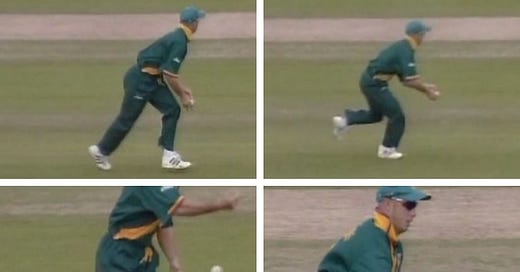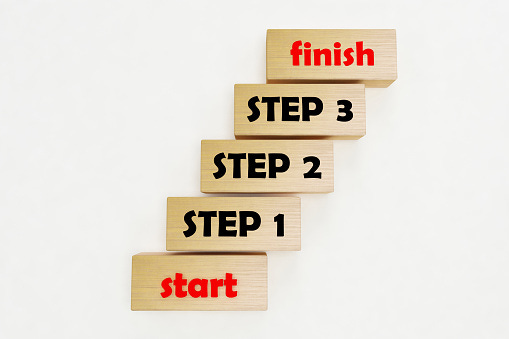The Proteas are guilty of focusing on the end goal and forgetting their processes.
Some battles are won first in the mind before they are won on the field.
“History has a habit of repeating itself, until someone has the insight to say ‘enough’ and then has the courage to act to change it.” This is a quote from Paddy Upton’s book, The Barefoot Coach. A quote that speaks to a topic I have had multiple discussions about, with different people. When it comes to the Proteas and World Cups, one cannot deny the fact that it always seems like history is repeating itself. However, the last few world cups have been slightly different in that, the team made early exists and barely looked like it would even win the tournament to begin with.
The debates and discussions around the team’s lack of success in world cups have also become a bit cliché. It is always the same topics after every world cup exit. “Proteas choked again,” “Selection blunder” and not to say that these things have not played a role in the team’s exit from World Cups. Especially selection blunders but, I also think there is more to the Proteas’ world cup woes than just the same stuff we repeat every world cup cycle.
Apart from the uncontrollable, almost every South African side I have watched in a world cup has made the mistake of failing to focus on basics and trying to take things step by step. I know in a world cup you probably feel like you do not have enough time and sometimes, well you focus too much on the end goal and forget the processes that will successfully take you to the end goal when followed. One thing coaching has taught me is that short cuts are never as short as we assume. Trying to cut corners will often delay you more as opposed to doing things step by step. Focusing on getting every single step correctly vs focusing on the end goal. A player whose focus is on the end goal is likely to make mistakes than a player whose focus is on the processes and or steps they need to take to get to the end goal. This probably does not make sense so let me make an example. Let me use a famous incident for example. Hershel Gibbs, 1999. Gibbs knew he could catch the ball and he knew what the end goal was and what the end goal meant for him and the team. As the ball was hit to him, he forgot that catching the ball was part of his processes and focused on the fact that end goal would be a big wicket for the Proteas. He did not complete all the steps required to complete the skill of catching and did not follow all the process. His mind was already set on celebrating because it knew what the end goal was. He caught the ball but did not complete the skill of catching and quickly moved on to his celebration which resulted in him dropping the ball. Had Gibbs waited a bit longer to complete the skill of catching then look to celebrate, who knows where the Proteas would be in terms of world cups now?
AB’s missed run out of 2015 is also an example of focusing on the end goal and forgetting all your processes and steps. There are quite a number of examples. Perhaps, the boys need to take a completely different approach to world cups. Forget about match results and what they mean for the team and focus on being to cross their Ts and dot their Is in order to write their world cup story.
South Africans are generally known to be fighters. Gritty and tough. It is time that South African cricket moves away from being fighters and being the team that wins people’s hearts while other teams win trophies. We need to get to a point where we are ruthless in how we go about things and being ruthless does not only refer to batting and bowling. We need to be aggressive on the field too.
“Teamwork makes the dream work.” As simple as this phrase sounds, it carries a lot of weight. Even with the fact that cricket has a lot of personal milestones, it remains a team sport and over reliance on one or two individuals in a side can be detrimental to the team’s success. The Proteas are guilty of this. Guilty of relying on one or two players and for the team to win a world cup, this will need to change. The XI selected on the day will all have to play their part. I know in cricket we often use the term, “single-handedly” but it is very unlikely that a team can win a world cup, let alone a match through the efforts of one player only. If that were possible, the Proteas would have won the world cup in 2015 already where AB was in excellent form. Going into the World Cup, the Proteas will have to work with each, back each other’s efforts up to give themselves a better chance of winning the tournament.
Regardless of the magnitude of the match, it will always be important to stick to one’s basics and processes. Even a batter who forgets his basics tends to lose shape. To maintain shape, the Proteas will need to stick to their basics. Graeme Smith in his book speaks about the 3 Ps. Pressure, Patience, and Partnerships. He speaks about the importance of building pressure and being able to withstand the pressure from opposition, Building partnerships with the bat and ball plus fielding in partnerships. Lastly, the ability to be patient and stick to your basics as opposed to trying to force things to happen.
Some battles are won first in the mind before they are won on the field.




